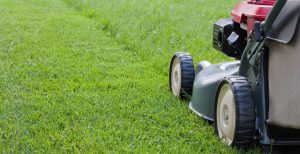For many gardeners, the lawn in their gardens is their pride and joy. However, if the grass looks as if it’s seen better days, it can ruin the aesthetic of the flowerpots that they’ve used to line the borders or the entertainment space on the patio that they’ve set up for guests. This is why our team at Field Compost has listed three tips for grass growth to help keep your lawn in tip-top shape.
 Overseeding
Overseeding
If your grass is looking sparse and doesn’t seem to be growing very well, you can try overseeding it. Rather than following the recommended amount of grass seed that your chosen provider has stipulated, give your lawn a little top-up. Mixed with Field 4 or Field 5, grass seeds can fill in thinner, weaker areas of grass, and they can work wonders in improving the colour of a lawn, as well as keeping out potential weed and moss.
The best way to overseed your lawn is to use a spreader so that you can get an even distribution of seeds after you’ve aerated and mowed it. However, the most important tip is to keep your lawn moist as this is what will encourage the seeds to grow.
Remove moss
If your lawn is struggling to produce a healthy bed of grass, check for moss growth. Springing from shaded, thatch ridden, sodden, and droughty conditions, moss can have a direct effect on grass growth. This is because it stops the grass plant from being able to rise. To remove cases of moss, you can apply a chemical moss killer, but ensure that it contains ferrous sulphate as this is the most effective agent.
Aerate your lawn
To encourage grass growth, it helps to aerate the topsoil of your lawn. You can use tools such as a garden fork or other specially made tools to poke holes into your soil at different depths. This allows for the greater penetration of both air and water to the grass’s root, providing it with better access to the nutrients that’ll help it to grow. This is a top tip for better quality grass if yours is prone to either water logging or drought.
For more information on how to improve your lawn care routine, feel free to contact a member of our team at Field Compost today.